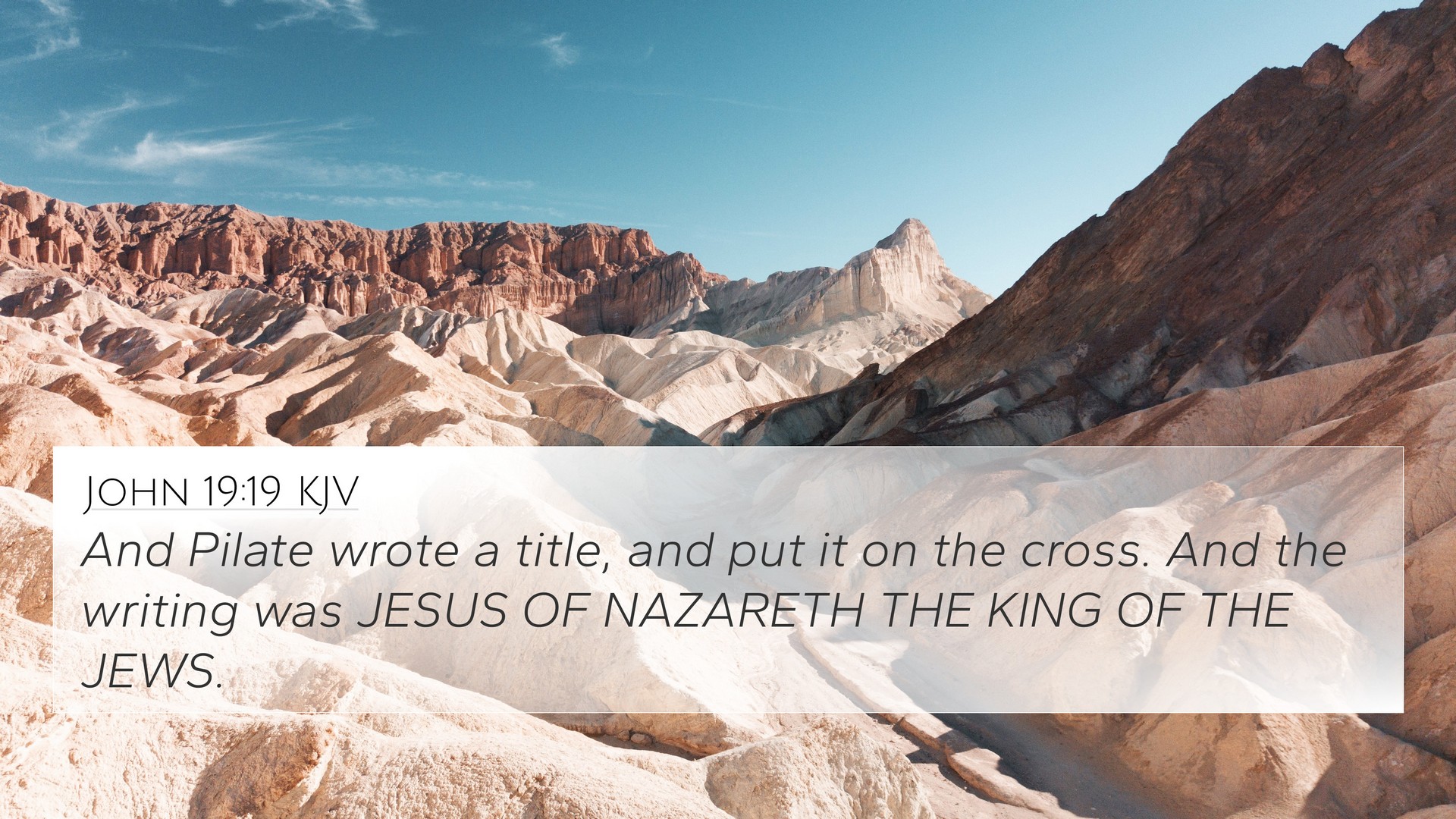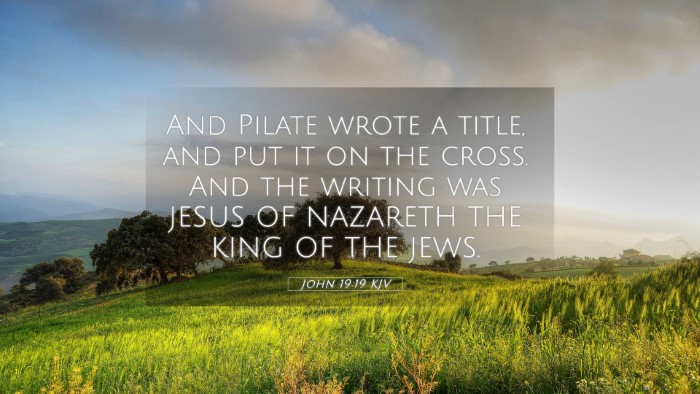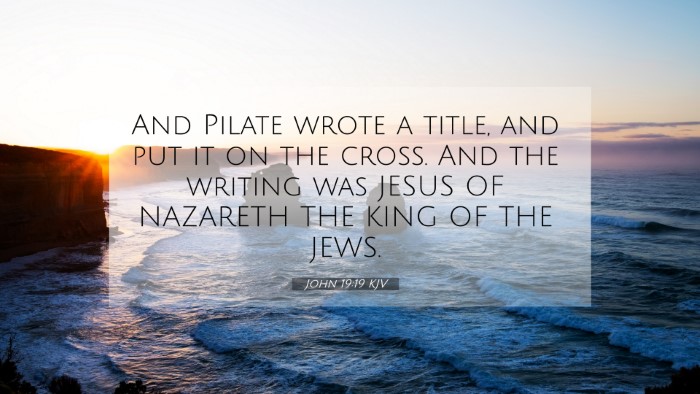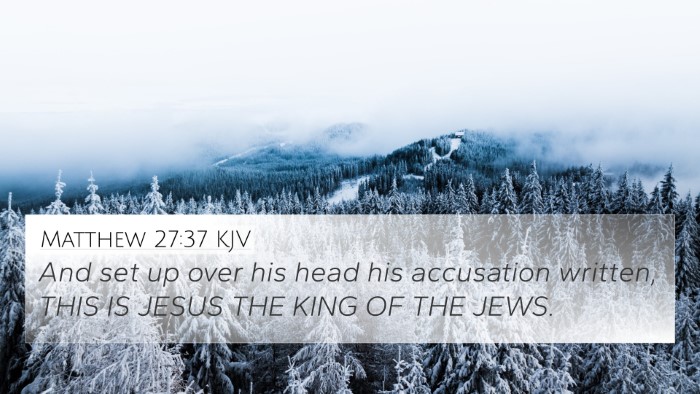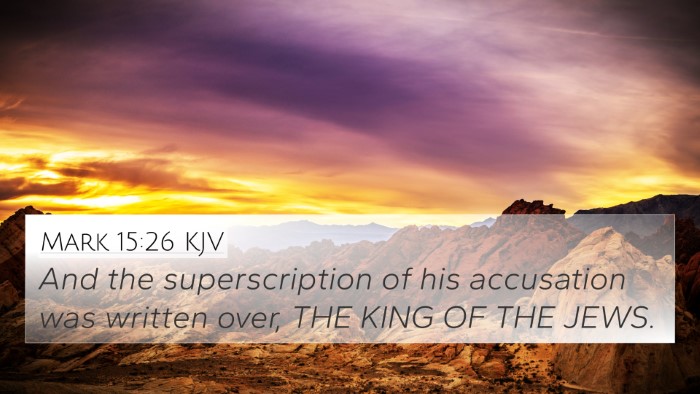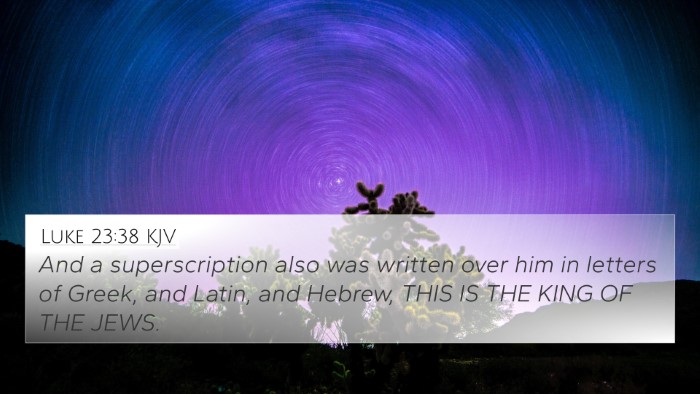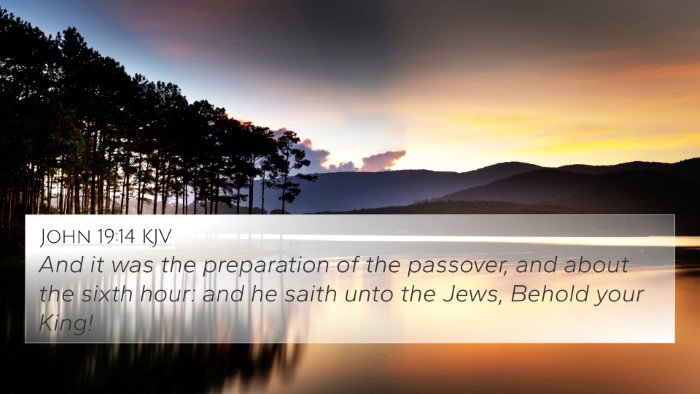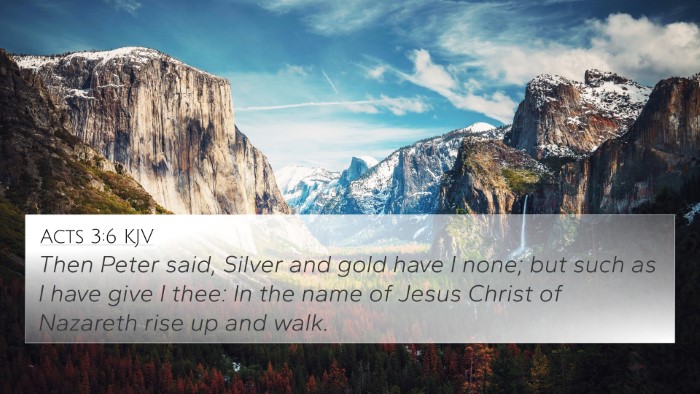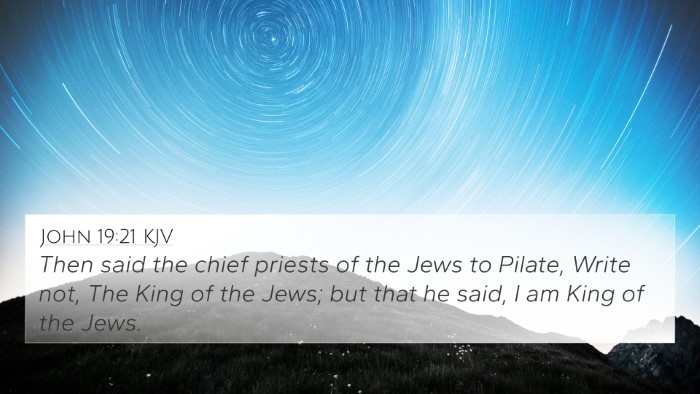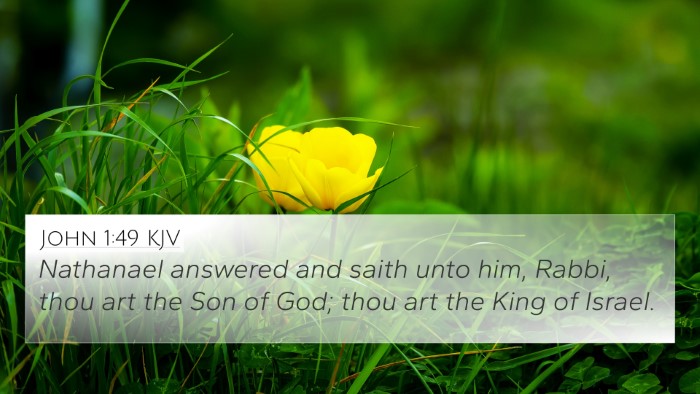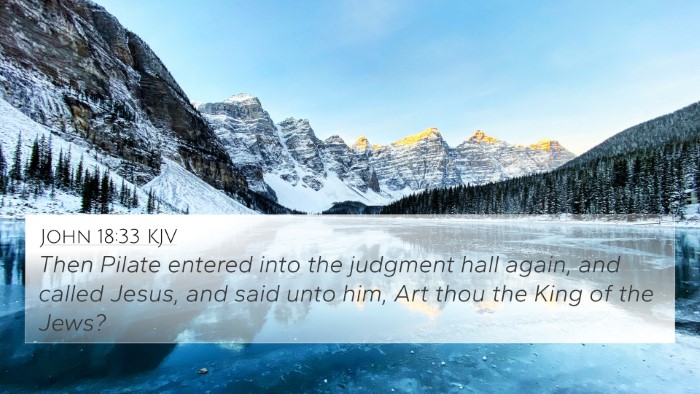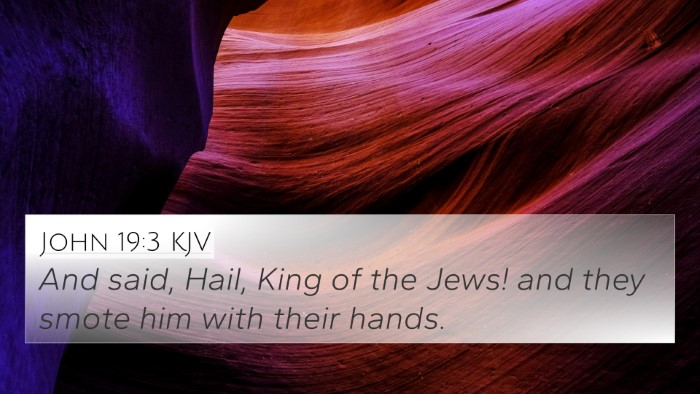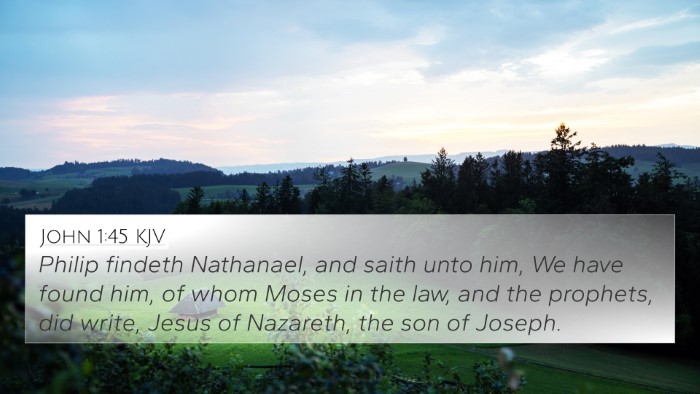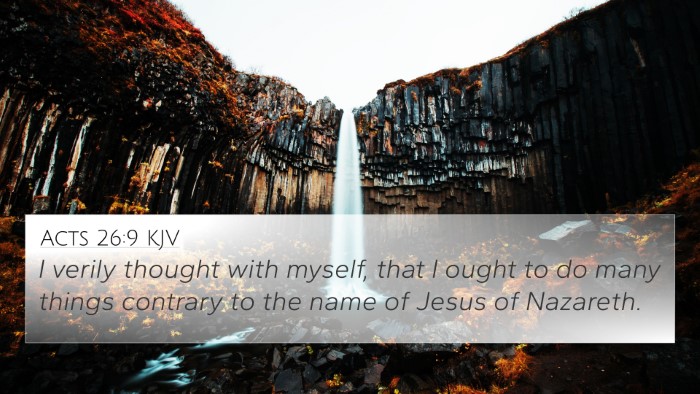Understanding John 19:19: A Comprehensive Analysis
Bible Verse: John 19:19 - "And Pilate wrote a title and put it on the cross. And the writing was, Jesus of Nazareth, the King of the Jews."
Overview of John 19:19
The verse John 19:19 presents a crucial moment at the crucifixion of Jesus, where the title placed above Him ("Jesus of Nazareth, the King of the Jews") serves both a formal and theological function. This proclamation not only signifies the charge against Jesus but also captures His identity in a profound way.
Significance of the Inscription
The inscription, penned by Pilate, reflects a mixture of political irony and divine truth. Pilate’s intention might have been to mock Jesus's claim to kingship, yet the statement ironically acknowledges Jesus’ true identity as recognized in the Christian faith.
Commentary Insights
- Matthew Henry: Henry emphasizes that the title, though intended for humiliation, inadvertently glorifies Christ. He reflects on how even in His suffering, Jesus’ identity as the Messiah is proclaimed.
- Albert Barnes: Barnes discusses the significance of Geographical context, noting that Jesus is identified as "of Nazareth," pointing to his humble beginnings but also fulfilling the prophetic scripture. He suggests that the title displays both contempt from earthly authorities and divine acknowledgment.
- Adam Clarke: Clarke remarks on the custom of naming the crime on a placard for the condemned, highlighting the irony in the public declaration of Jesus’ kingship. He suggests that this act was a part of God’s plan for Jesus to be revealed as king through His suffering.
Thematic Connections
John 19:19 connects with various themes established throughout scripture, indicating the unity of the Biblical narrative regarding Jesus’ identity and mission. Below are some related themes and cross-references that enrich the understanding of this verse:
- Philippians 2:10-11: Acknowledges that at the name of Jesus, every knee should bow, affirming His kingship.
- Matthew 27:37: Also notes the same inscription placed upon Jesus’ cross, reinforcing its importance within the Gospels.
- Isaiah 53:3-5: Prophetic description of the suffering servant, providing context for Jesus' humiliation and the reason for His sacrifice.
- Psalm 22:6: A messianic psalm that portrays the suffering of the righteous and foreshadows the crucifixion, enhancing the depth of Jesus’ suffering as the King.
- Luke 23:38: Provides a parallel to the event, connecting the Gospel accounts and reinforcing Jesus’ title at the time of crucifixion.
- Mark 15:26: States the same title, emphasizing the consensus among the Gospel accounts concerning Jesus’ identity.
- John 1:49: Nathanael recognizes Jesus as "the Son of God," linking the acknowledgment of Jesus as King back to His earthly ministry.
- Revelation 19:16: Affirms Jesus as King of Kings, presenting the eschatological view of His reign.
- Matthew 21:5: Refers to the prophecy of Jesus’ entry as the humble King, setting the stage for the events culminating in the cross.
- 1 Timothy 6:15: Speaks of the appearing of our Lord Jesus Christ, who is the blessed and only Potentate, the King of Kings, reinforcing His divine status.
Conclusion
John 19:19 encapsulates a moment rich with meaning that showcases the irony and glory surrounding Jesus' crucifixion. This verse not only indicates the mockery by earthly powers but also the recognition of Jesus' identity as the true King, fulfilling scriptural prophecy while inviting believers into deep reflection on His purpose and sovereignty. The connections between Bible verses surrounding this moment are vital as they demonstrate the cohesive narrative of Scripture and encourage deeper study through various Bible reference resources and Bible cross-reference guides. Utilizing these tools and understanding thematic Bible verse connections through cross-referencing can enhance one’s practical engagement with the Bible.
